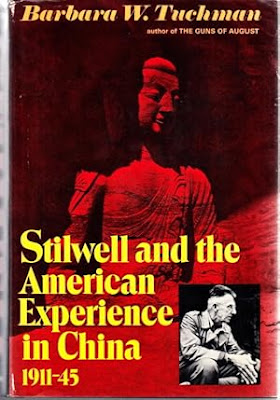A book about historic failure needs a deft hand to keep from being more than a drag for a reader, especially when the topic is the Allied effort in World War II. During the march to final victory, who wants to dwell on an endless spiral of ignominy going on in China?
Stilwell And The American Experience In China is not easy to ignore. It was a history of great occasion when it came out, a Pulitzer Prize-winning examination of American policy in the Far East. This came out at a time when young men were being shipped home from Vietnam in body bags by the hundreds every month.
That the book would be seen as all-too-relevant to the politics of the 1970s was not something author Barbara Tuchman avoids. She makes her feelings clear enough in the book’s Foreword:


